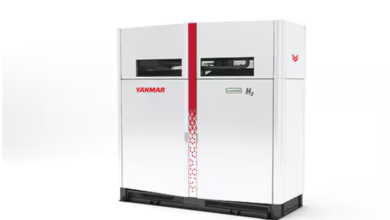Nippon Steel to decarbonise steel with hydrogen
Decarbonisation will increase the steel production costs, and developing carbon free steel facilities require substantial investment

Nippon Steel, Japan’s largest integrated steelmaker, unveiled its medium to long term plan for steel decarbonisation with expanding hydrogen applications in steelmaking, H2 Bulletin reports.
The steelmaker aims to develop large-scale electric arc furnace (EAF) plants by around 2030 as a part of its ‘Carbon Neutral Vision 2050’ project. The Japanese steel giant plans to develop a direct hydrogen-reduction steelmaking process before 2050. The company plans a 30% reduction in CO2 emissions by 2030 compared to 2013 through implementing Course50 to blast furnaces and basic oxygen furnace processes. Course50 is a project to develop technology to partially use hydrogen in the blast furnace reduction of iron ore instead of coking coal.
Further towards 2050, the company aims to upgrade its technology to ultra-innovative technologies such as mass production of high-grade steel in electric furnaces and through Super-Course50, Carbon dioxide capture, utilisation and storage (CCUS) and other hydrogen reduction methods. Super-Course50 is an advanced technology development project to increasing the hydrogen reduction ratio in the blast furnace steelmaking method.
Nippon steel stated in its latest report that the 100% hydrogen direct reduction method of steelmaking is the ultimate zero carbon steelmaking technology but is not yet proven and faces extremely high innovation hurdles.
The blast furnace hydrogen reduction method will require developing technology for hydrogen heating and blowing endothermic reactions during hydrogen reduction. The R&D costs can go up to ¥ 500 billion (US$ 4.5 billion), whereas the Capex of building facilities can go up to ¥ 5 trillion (US$ 45 billion). The steelmaker expects carbon-free steel production will increase production costs. It anticipates that the production cost of crude steel by 2050 can be more than double that of current costs.
Meanwhile, Nippon Steel is building an EAF at its Hirohata plant, which is set to come online in the first half of 2022. Outside Japan, in line with its decarbonisation plan, the company also wants to commission a new EAF in H1 2023 at its Alabama site in the US, its joint venture with ArcelorMittal.
